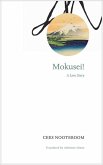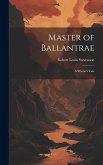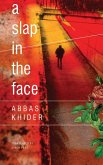One night in the middle of winter, as deep snow covers the mountains and forests, a doctor is crossing the ridge in Austria from Traich to Föding to see a patient. He stumbles over a body in the darkness and fears it is a corpse. But it's not a corpse at all. In fact, it's wooden-legged Victor Halfwit, collapsed, but still very much alive. So begins this simultaneously absurd and tragic tale by celebrated Austrian playwright, novelist, and poet Thomas Bernhard. Combining the darkly comic voice and vision of Bernhard with the lush and beautiful collages of Indian designer Sunandini Banerjee, Victor Halfwit is a unique and collectible artist's book. Illustrated in color throughout, this edition imaginatively presents Bernhard's fable in a distinctive and unconventional style. It is the perfect gift book that will be cherished by fans of Bernhard's other works and will inspire new interest among visual artists.
Hinweis: Dieser Artikel kann nur an eine deutsche Lieferadresse ausgeliefert werden.
Hinweis: Dieser Artikel kann nur an eine deutsche Lieferadresse ausgeliefert werden.








